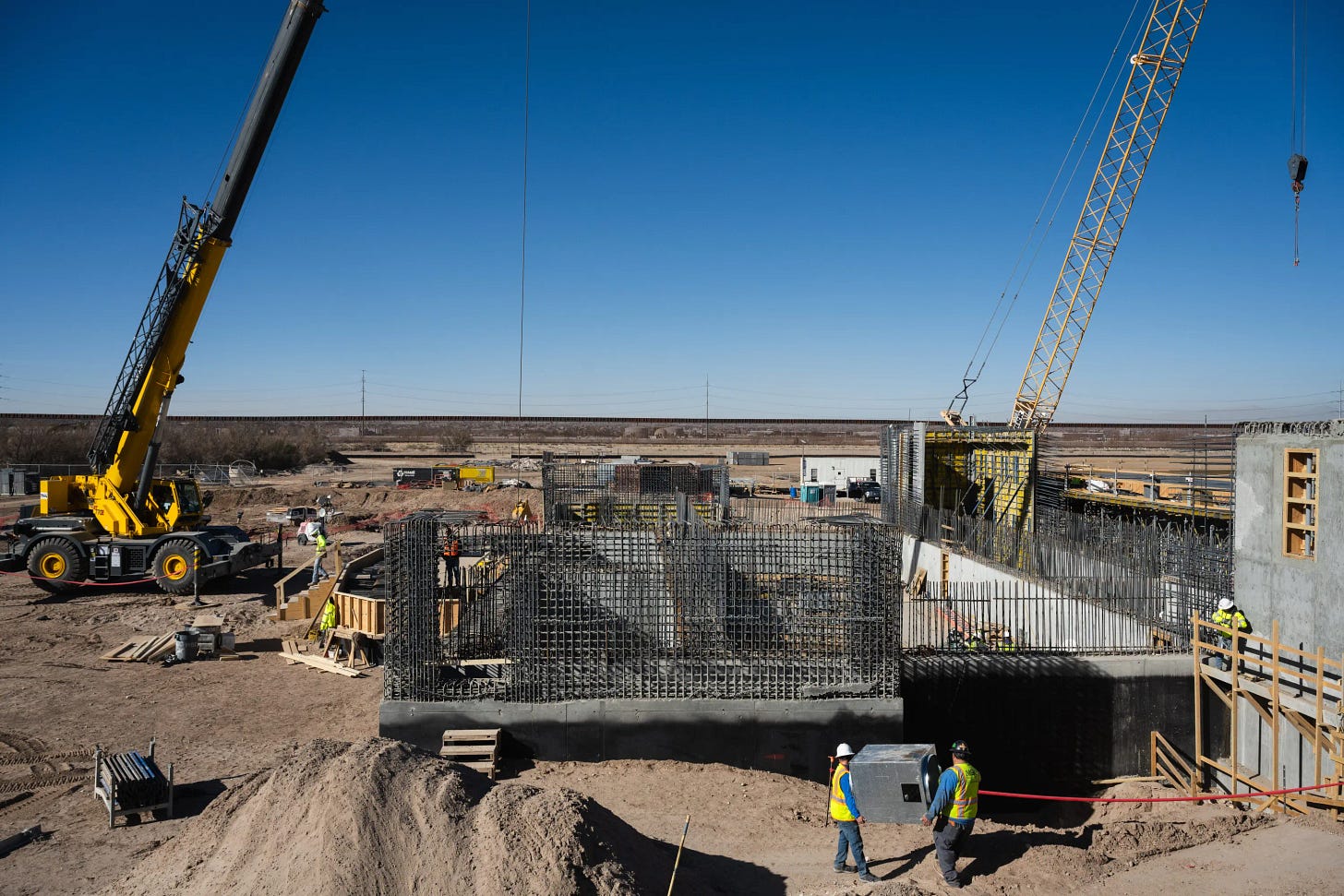🚽💧 El Paso Becomes First U.S. City to Send Purified Wastewater Directly to Drinking Water System
🇺🇸📉 Texas Universities See Immigration Status Revoked for 118 International Students 🧾🧟 Trump Administration Labels 6,000 Living Immigrants as Dead to Revoke Social Security Access

🚽💧 El Paso Becomes First U.S. City to Send Purified Wastewater Directly to Drinking Water System
_Alejandra Martinez, The Texas Tribune.- El Paso is pioneering the nation’s first direct potable reuse system, transforming wastewater into clean drinking water delivered straight into the city’s supply. The initiative, led by El Paso Water, comes as the city battles dwindling groundwater and surface water reserves in the arid West Texas region. The $295 million Pure Water Center will produce 10 million gallons daily by 2028, purifying water through advanced filtration, UV light, and mineral infusion. Residents have embraced the effort following extensive public education campaigns that emphasized drought resilience and the city's long history of water reuse. Experts say El Paso’s forward-thinking, conservation-driven model offers a scalable solution for other U.S. cities confronting climate-driven water shortages. However, concerns remain that Texas lawmakers overlook innovative water recycling approaches in favor of costly new infrastructure. El Paso’s success, advocates argue, could redefine how cities manage and conserve limited water resources.
Key Data Points:
Project: El Paso's Pure Water Center — direct potable reuse facility
Operational Date: Expected by 2028
Water Output: 10 million gallons/day
Total Cost: $295 million
Federal Funding Secured: $23.5 million (Bureau of Reclamation)
Water Sources: Hueco and Mesilla Bolsons (55%), Rio Grande (40%)
Citywide Usage (2024): 105 million gallons/day
Population Served: 679,000 residents
Historical Milestones:
1960s: Recycled wastewater for irrigation
1980s: Advanced reclamation via Fred Hervey Plant
2007: Opened large inland desalination facility
Conservation Impact: Water use cut by 40% since 1970s
Statewide Impact Potential: 62,000 acre-feet/year from reuse by 2070 (enough for 372,000 Texans)
State Concerns: Water recycling not prioritized in current state funding strategies
Public Approval (2013): 84% of El Pasoans supported potable reuse
🇺🇸📉 Texas Universities See Immigration Status Revoked for 118 International Students Amid DHS Crackdown
_Ayden Runnels, The Texas Tribune.- A total of 118 international students across multiple Texas universities have had their legal immigration status revoked or terminated in recent days, following a wave of removals from the federal Student and Exchange Visitor Information System (SEVIS). The move, partially linked to new Department of Homeland Security policies targeting alleged antisemitic content tied to pro-Palestinian campus protests, has impacted graduate and undergraduate students alike. Universities including UNT, UTA, UTD, Texas A&M, UTRGV, TWU, and Texas Tech confirmed terminations, while UT Austin, UTEP, and UH acknowledged similar actions but declined to disclose figures. SEVIS termination strips students of their right to remain in the U.S., work, or continue studies without rapid intervention. Immigration attorneys warn the lack of due process raises serious legal and ethical concerns, especially with many students facing confusion, fear, and uncertainty over their futures.
Key Data Points:
Total affected: 118 international students across at least 10 Texas universities
Universities confirming revocations:
University of North Texas – 27
University of Texas at Arlington – 27
University of Texas at Dallas – 19
Texas A&M University – 19
University of Texas Rio Grande Valley – 9
Texas Woman’s University – 4
Texas Tech University – 3
University of Texas at El Paso – 10 (per media reports)
SEVIS removal effects: Ends legal student status, eliminates work eligibility, affects dependents
DHS justification: New policies to monitor “antisemitic” content on social media
Legal concerns: Due process violations and lack of individualized notice or justification
Status recourse: Students may apply for reinstatement or voluntarily leave the U.S.
🧾🧟 Trump Administration Labels 6,000 Living Immigrants as Dead to Revoke Social Security Access
Will Weissert and Fatima Hussein, Associated Press.- In a covert move, the Trump administration has designated over 6,000 living immigrants as deceased, stripping them of Social Security numbers and cutting off their access to work, banking, and public benefits. According to two anonymous sources, the maneuver is part of a more significant push to force the voluntary departure of migrants who entered the U.S. under Biden-era programs, including those admitted through the CBP One app. The move places these individuals in the federal death database, which is usually reserved for confirmed deceased persons, further complicating their legal and financial standing. Critics argue the policy weaponizes bureaucracy and bypasses due process. Legal groups like Democracy Forward are preparing lawsuits, while privacy and immigration experts warn of civil rights violations. The Social Security Administration has not commented, and the IRS has already faced a leadership fallout from related enforcement cooperation with ICE.
🕵️♂️📵 Trump Administration to Deny Immigration Benefits Over Antisemitic Social Media Activity
_AP News.- The Trump administration announced it will begin screening immigrants’ social media for antisemitic activity as part of its immigration benefit adjudication process. The new guidance, effective immediately, applies to applicants for green cards, student visas, and those affiliated with schools allegedly linked to antisemitic behavior. Immigration authorities will now consider social media posts promoting “antisemitic terrorism” or ideologies — including any perceived support for Hamas, Hezbollah, or Palestinian Islamic Jihad — as grounds for denial. The U.S. Citizenship and Immigration Services (USCIS) has not defined what constitutes antisemitism, raising concerns among civil liberties advocates about free speech violations and overreach. This move follows a broader Department of Homeland Security proposal to expand social media surveillance in compliance with a Trump executive order. Critics warn it could unfairly target pro-Palestinian activists and chill campus dissent, as seen in recent deportation cases. The policy marks a major shift toward ideological scrutiny in immigration enforcement.




